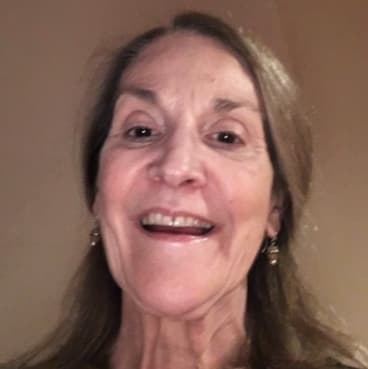Advertisement
Review
SpeakEasy's 'Allegiance' Gives A History Lesson Awash In Song And Shame
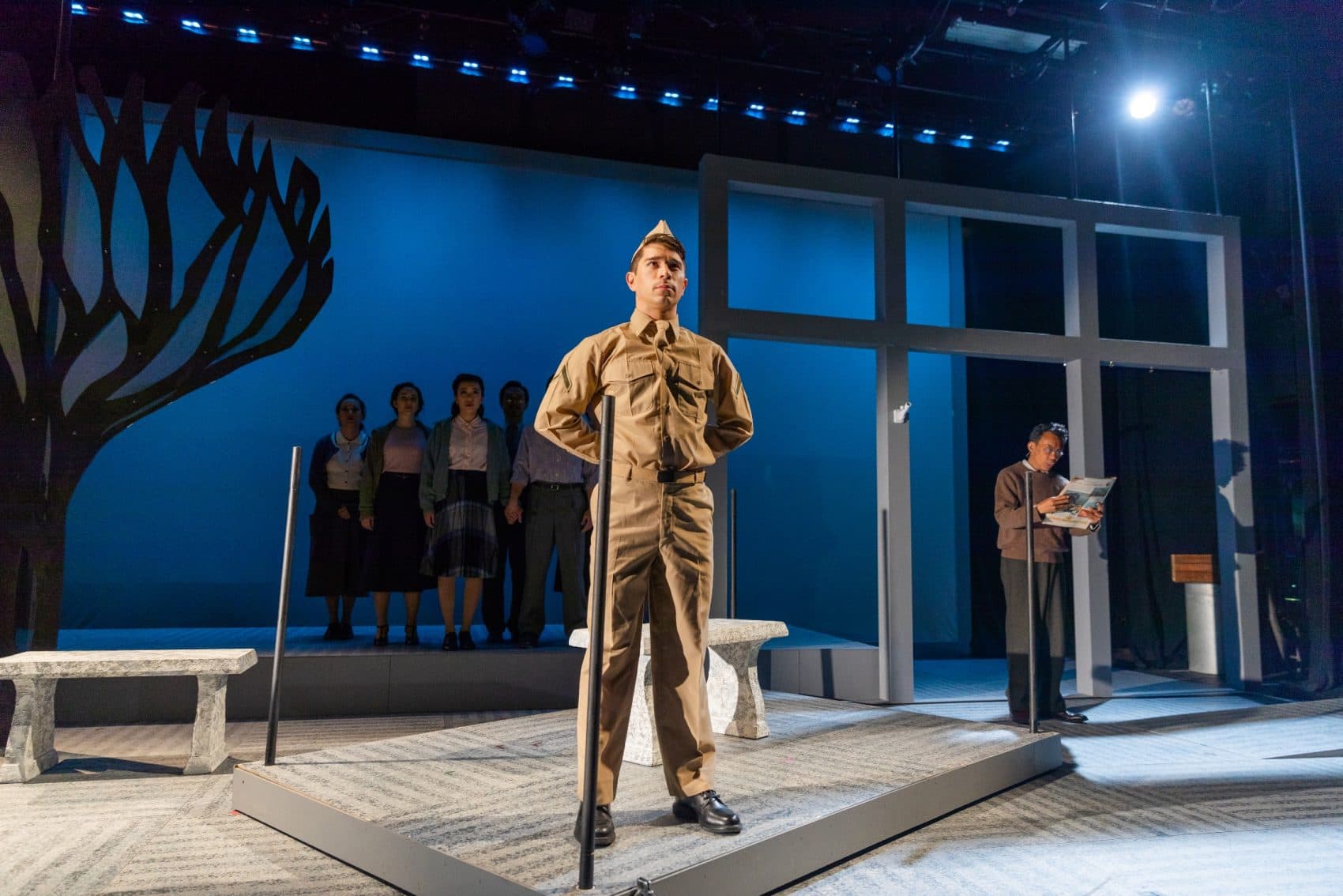
The affecting new musical “Allegiance” waffles in its own allegiance between documentary and showbiz. The theater piece — which debuted at San Diego’s Old Globe Theatre in 2012, hit Broadway in 2015, and is currently in its Boston premiere by SpeakEasy Stage Company (through June 2) — dubs itself “a new musical inspired by a true story,” that of the 120,000 Japanese-Americans who were shamefully rounded up and interned for most of World War II.
In its California and New York engagements, the show featured, and was wholeheartedly endorsed by, a survivor of the internment: beloved “Star Trek” actor George Takei, who weathered the ordeal as a child. When not manning the Starship Enterprise, Takei has made it his personal mission to call attention to this disgraceful chapter of American history, never more relevant than it is now in the face of simmering Islamophobia and President Trump’s proposed ban on immigration from some Muslim countries. But “Allegiance,” for all its worthy intentions, is imperfect as both history and musical theater.
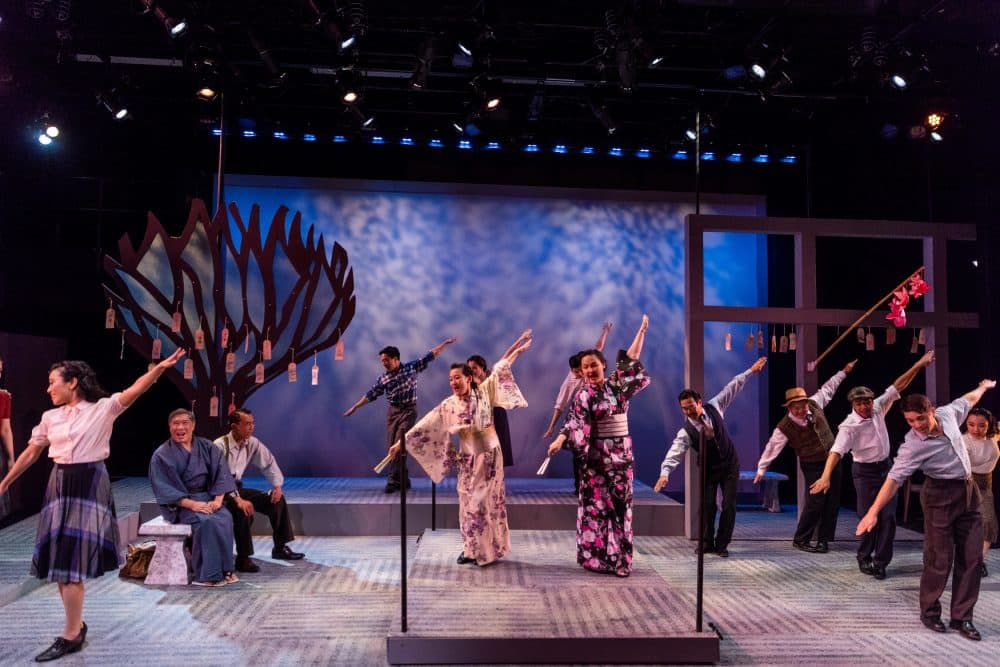
The creators of the show — the book is by Marc Acito, Jay Kuo and Lorenzo Thione, with music and lyrics by Kuo — freely admit that the piece strays into fiction for the sake of creating drama. And I certainly learned things from it, specifically about the rents torn through Japanese-American families and communities regarding how best to demonstrate loyalty to a nation that arguably did not deserve it.
But “Allegiance” has a lot of plot to cover (more than it needs, especially when it comes to the muddily conveyed, melodramatic climax of the second act). Moreover, too much of Kuo’s score consists of talk-sung arguments and earnest, overblown anthems. The best songs are the few into which Japanese musical elements sneak and the jazzy ones that bespeak America in the 1940s. These are bolstered at SpeakEasy by Ilyse Robbins’ bebop and Andrews Sisters-inspired choreography for non-dancers. Even Kuo’s lyrics for the syncopated numbers are less banal than for the rousing and sentimental ones.
And yet, in Paul Daigneault’s simple staging for SpeakEasy Stage, in which Japanese theater effects rub shoulders with the Big Band era, the musical is often a lot sweeter than the events it portrays. And you cannot deny the emotional payoff of the ending — a coda in which decorated Japanese-American World War II vet Sam Kimura, estranged from his family for 50 years, gets a do-over.
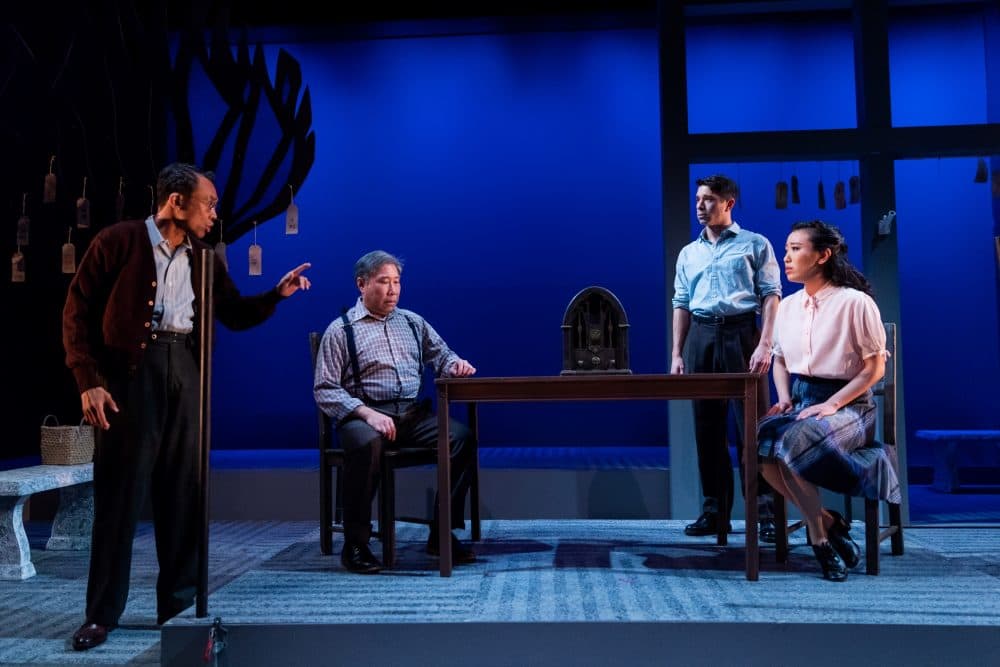
That coda is bookended by a brief prologue before the time travels back to 1941 in Salinas, California, where the artichoke-farming Kimura clan welcomes recent college grad Sammy home just in time for the Japanese summer festival of Tanabata. The party is short-lived, however, because we are soon hearing FDR’s famed “a date which will live in infamy” radio speech in the wake of the bombing of Pearl Harbor.
Familial sparks are immediate, with dad Tatsuo counseling to lie low and “Do Not Fight the Storm” while Sammy can’t wait to show himself as a patriotic American by enlisting in the Army. But when he and a few friends attempt to do that, they are bluntly told: “A Jap is a Jap.” (A flaw of the show is that it turns the all-purpose representative of the American military — called Hakujin, Japanese for a white person — into a Nazi brownshirt. However, many would agree with the portrayal of National Secretary of the Japanese Americans Citizens League Mike Masaoka as a toadying tool of the government.)
“Allegiance” is a relatively small-scale musical that focuses on family: the Kimura clan and those in their immediate circle at the dust-pummeled Heart Mountain internment camp in Wyoming. When it comes to the infamous government-generated “loyalty questionnaire,” Sammy is quick to declare his willingness to serve in the military under whatever circumstances while others maintain they will resist military service until their families are freed. This contingent is represented in the show by the character Frankie Suzuki, who courts Sammy’s older sister Kei.
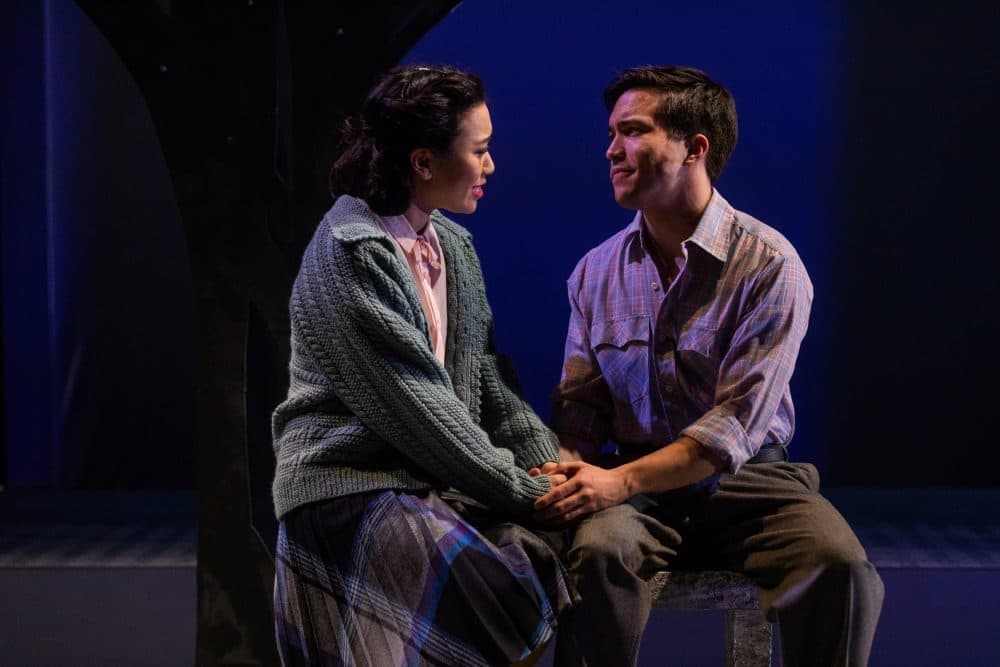
Meanwhile, Sammy enters into a serious if dangerous flirtation with Caucasian army nurse Hannah Campbell. He also joins the 442nd Regimental Combat Team, a regiment consisting almost entirely of Americans of Japanese ancestry, and becomes a war hero. But his old-school father, finally choosing honor over lying low, refuses to answer “yes” to the crucial asks on the questionnaire, rejecting on principle the renunciation of a loyalty to the Japanese emperor that he never had. In the play, Tatsuo is taken away in handcuffs while Frankie is subjected to even worse treatment.
This being a musical, none of the fisticuffs — either literal or philosophic — is allowed to get in the way of young love, that element most tenderly represented in the character of Kei, who is as kind with her father and elderly grandfather as she is with Sammy, whom she cared for after their mother died giving birth to him, and, after some initial shyness, with Frankie. Kei also gets the prettiest songs, including the lovely metaphorical ballad “Higher.” And at SpeakEasy, Grace Yoo brings to them a beautiful, natural soprano and a combination of grace, diplomacy and fire.
Gary Thomas Ng doubles as the elderly Sam Kimura of the prologue/coda and Sammy and Kei’s gentle grandfather, Ojii-chan, who duets winsomely with Kei on “Ishi Kara Ishi” before quietly keeling over in the internment camp garden where he has miraculously conjured flowers from the dust. Sam is a tougher cookie than Ojii-chan, but the excellent Ng portrays the latter with an impish charm that does not preclude “gaman” — Japanese for endurance with dignity — and the former with a stiffness that movingly crumbles into regret.
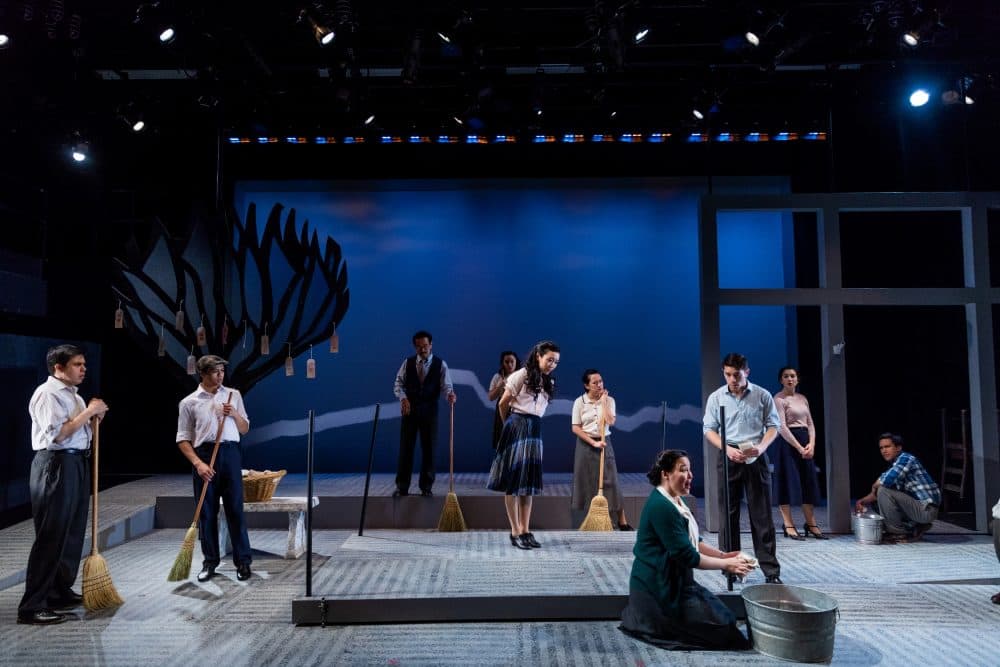
Sam Tanabe’s Sammy is almost too straight an arrow, giving square-shouldered delivery to the anthemic “What Makes a Man a Man.” But with Melissa Geerlof’s Hannah, whose uniform remains starchy even as she loosens and toughens up, he cuts a mean, flirty rug. So does Tyler Simahk’s Frankie, leading the company in the jazzy, scathing “Paradise” and his fellow resisters in the defiant “Resist.”
Indeed, the entire troupe is both forceful and earnest in a musical whose aim is admirable but whose book and music are only serviceable. In the end, even as I felt myself tearing up, I wondered if “Allegiance” might have been more effective if it had cut the music and the melodrama and just let its fact-based, keenly pertinent cautionary tale tell itself.
SpeakEasy Stage Company’s production of “Allegiance” runs through June 2 at the Calderwood Pavilion.
